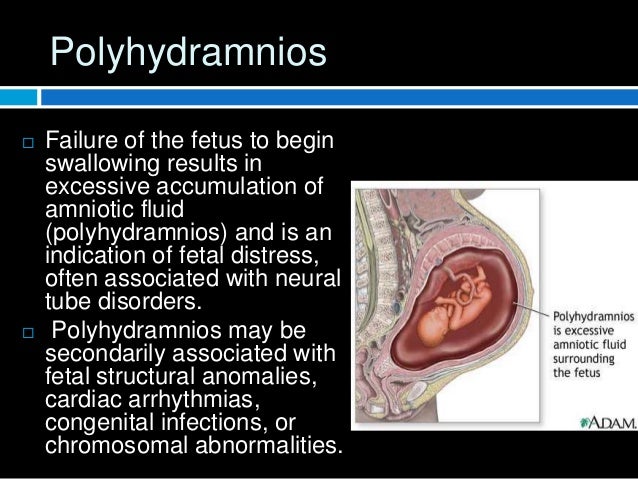

(2013) The Role of Vitamin C in Prevention of Preterm Premature Rupture of Membranes. The fetus may move about in this fluid, but it limits the wall of the uterus from contracting too tightly. Amniotic fluid is the substance which surrounds the fetus as it grows in the uterus. It can also be a sign of a condition that can pose risk to the growing baby.

Delayed treatment often poses a danger to both the unborn child and the mother. The fetus will continue to produce amniotic fluid even if there is a leak, but it may not be enough if there is a heavy leak (13). Leaking amniotic fluid is a problem experienced by many pregnant women. Nevertheless, you should get it checked by the doctor before concluding anything. However, if it occurs in the second trimester and is accompanied by other symptoms such as abdominal pain, it could be a sign of miscarriage. Leaking amniotic fluid is not one of the common reasons for a miscarriage. Does Leaking Amniotic Fluid Mean Miscarriage?

However, consult your doctor about the safety and efficacy of its consumption.
Leaking amniotic fluid in toilet trial#
PROM is generally not preventable but avoiding the risk factors such as smoking, alcohol, and unprotected sex might reduce the probability of the condition (11).Īccording to one clinical trial study, intake of vitamin C supplements by pregnant women, with a history of PROM, after the 14th week of pregnancy may help reduce the risk of PROM in the current pregnancy (12). Can You Prevent Premature Rupture Of Membranes?


 0 kommentar(er)
0 kommentar(er)
